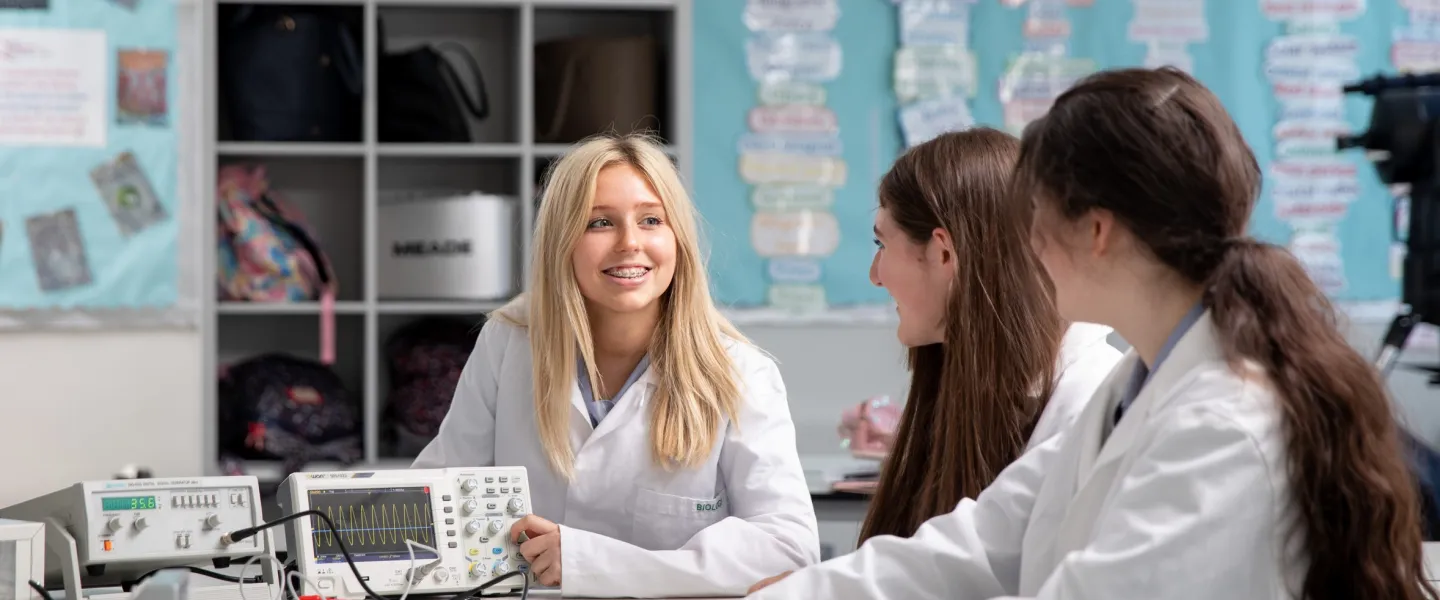Physics is often considered the most fundamental of all the natural sciences and its theories attempt to describe the behaviour of the smallest building blocks of matter, light, the Universe and everything in between.
The course is challenging, however good grades are consistently achieved by able and hard working pupils.
It is excellent preparation for the rigours of a university education. A physics student usually possesses superior analytical, quantitative and problem solving skills. In addition, adept practical skills are developed as the course progresses.
We study in small teaching groups and there is considerable emphasis placed on understanding the concepts involved and gaining knowledge from practical experience.
Two members of staff are allocated to each group and 10 hour-long lessons are provided every fortnight. In addition, comprehensive support is offered in lunchtime sessions for pupils that require additional support.
Students study the AQA specification which is assessed at the end of Year 13 when pupils will take three, two hour examinations. Paper one includes particles, quantum phenomena, electricity, mechanics, materials, waves and periodic motion. Paper 2 includes nuclear physics, thermal physics, gravitational and electromagnetic fields. Paper 3 contains the astronomy module and also assesses student’s practical skills and data analysis as there is no coursework.
Universities recognise the variety of skills possessed by physics students and it's a qualification welcomed for degrees like business studies and law. You will need a minimum of a level 7 (A grade) in physics (or core and additional science) and maths at GCSE level to be accepted.
Science doesn't always go forwards. It's a bit like doing a Rubik's cube. You sometimes have to make more of a mess with a Rubik's cube before you can get it to go right
Dame Jocelyn Bell Burnell, Nobel prizewinning astrophysicist
